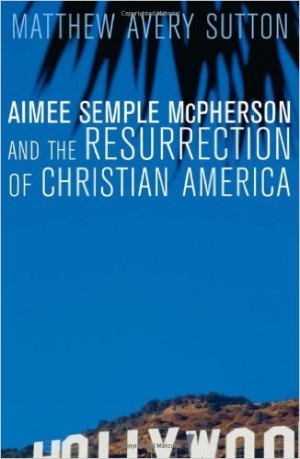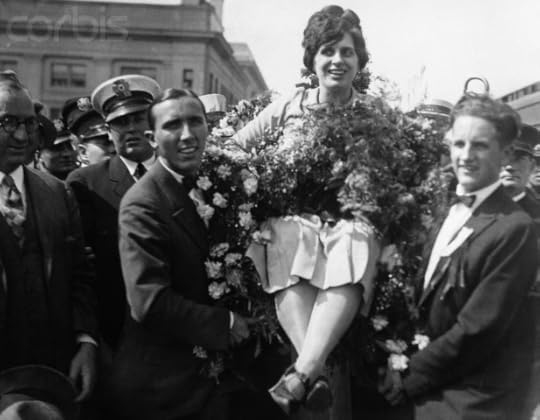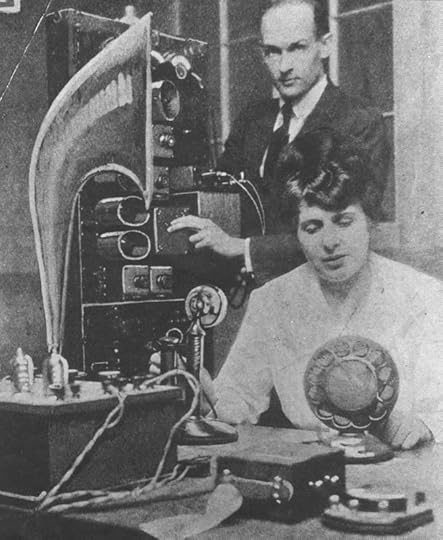Justin Taylor's Blog, page 51
May 31, 2016
What If “Iron Sharpening Iron” in the Book of Proverbs Is Actually Something to Avoid?
That’s the question raised by Ron Giese in the latest issue of the Journal of Biblical Literature: Ronald L. Giese Jr., “‘Iron Sharpens Iron’ as a Negative Image: Challenging the Common Interpretation of Proverbs 27:17,” JBL 135, no. 1 (Spring 2016): 61-76.
Here is a portion of the abstract:
Proverbs 27:17, “Iron sharpens iron, and one man sharpens the face his neighbor,” is almost universally seen as positive. Some view this maxim as an example of “tough love,” others as a rewording of a verse earlier in this passage, “Faithful are the wounds of a friend” (27:6).
There is little evidence, however, for these interpretations, which appear to reflect modern connotations of “sharpness.”
In fact, the biblical evidence for parts of a face that are “sharp” suggests a more negative reading, for sharp eyes or a sharp tongue show an intent to do violence or bring about destruction. The usage of the LXX’s verb for “sharpen” (παροξύνω) elsewhere confirms this interpretation. . . .
This study of the Hebrew and Greek verbs for “sharpen” suggests that v. 17 continues the idea of “friendships” to be avoided (vv. 13-16). The previous passage, then, teaches the positive aspects of friendship (vv. 1-10, esp. vv. 5-10), followed by the negative aspects in vv. 11-17. Iron sharpens iron, and one man sharpens the face of his neighbor (Prov 27:17).
And here is Dr. Giese’s conclusion:
The root חדד (“sharpen”) in the second half of the verse does not mean to “improve.”
The proper context for “sharpen” the face is passages elsewhere in the OT in which the tongue, lips, and eyes are made to be “sharp.” That is, the tongue, lips, and eyes are used like a sword or arrows.
The meaning of the verse is therefore along these lines: Just as a hard iron hammer pounds soft iron into something sharp, ready for battle, in the same way a man causes his neighbor to go on the attack (i.e., have a “sharp face”).
What would cause a man to anger his neighbor? The verse does not say, but too much time together in conversation (based on vv. 4-16) is a good guess.
“As iron sharpens iron” is a great slogan for friendship, “tough love,” and accountability among those who care for one another. The positive interpretation . . . however, requires too many leaps over too great a distance. It requires
(1) that Hebrew רע means “friend”;
(2) that “face” means “character”; and
(3) that “sharpen” in the second half of the verse means “improve” when used with “face.”
The first and second of these meanings are possible but unlikely in the context.
The third has no basis elsewhere, and in fact the evidence is all to the contrary. Though we do not find “sharpen” used with “face” elsewhere, there are multiple instances of key parts of the face used with the verb “sharpen,” with all of them showing a negative, not a positive, interpretation.
If you are a subscriber, you can read the whole article here.
Ron Giese (PhD, University of Wisconsin-Madison) is administrative pastor at Desert Springs Church in Albuquerque, New Mexico, which hosts the annual Southwest regional conference of the Gospel Coalition each year.
May 24, 2016
The Vanity of Conspiracy Theories and the Banality of Real Evil
 Now that the Republicans are a handful of delegates away from nominating an ostensible conspiracy theorist* to be their candidate to lead the free world, it’s worth recalling this insightful post by Carl Trueman from a few years ago:
Now that the Republicans are a handful of delegates away from nominating an ostensible conspiracy theorist* to be their candidate to lead the free world, it’s worth recalling this insightful post by Carl Trueman from a few years ago:
Conspiracy theories have an aesthetic appeal: they make us feel more important in the grand scheme of things than we are. If someone is going to all this trouble to con us into believing in something, then we have to be worth conning; and the impotence we all feel in the face of massive impersonal bureaucracies and economies driven not by democratic institutions so much as multinational corporations is not really the result of our intrinsic smallness and insignificance so much of our potential power which needs to be smothered. Such views play to our vanity; and, to be brutally frank, the kind of virtual solitary vice which so much solipsistic internet activity represents.
Conspiracy theories don’t hold up, though. Nobody is that competent and powerful to pull them off. Even giant bureaucracies are made up of lots of small, incompetent units fighting petty turf wars, a fragmentation which undermine the possibility of the kind of co-ordinated efforts required to pull off, say, the fabrication of the Holocaust. History, humanly speaking, is a tale of incompetence and thoughtlessness, not of elaborate and sophisticated cabals. Evil, catastrophic evil, is not exceptional and brilliant; it is humdrum and banal; it does not involve thinking too much; it involves thinking too little.
For more, see Trueman’s excellent book, Histories and Fallacies: Problems Faced in the Writing of History, especially his chapter on Holocaust denial.
* To be a bona fide conspiracy theorist is to believe said conspiracy theories. And while there is no doubt that Donald Trump persistently traffics in spreading or entertaining conspiracy theories and cover-ups—from Barack Obama being a Muslim who was born in a foreign country to George Bush intentionally deceiving the world about weapons of mass destruction in Iraq to Ted Cruz’s father helping to kill JFK to Hillary Clinton causing the suicide of Vince Foster to Justice Scalia being murdered by means of a pillow to discredited urban legends about Muslim terrorists being executed with bullets dipped in pig’s blood—it is virtually impossible to know whether Donald Trump actually believes any of the things he says or if he is saying them just to garner attention and create disruption. Hence, I refer to him as an ostensible conspiracy theorist—one who at the very least enjoys spreading and entertaining them, even if he doesn’t believe what comes out of his own mouth.
I should also mention that Hillary Clinton has promised, if President, to investigate and reveal what the US government knows and may be hiding about aliens and UFOs.
May 23, 2016
What Happened at the United Methodist General Conference 2016?
Timothy Tennent, a United Methodist who is president of Asbury Theological Seminary (with roots firmly planted in Wesleyan soil), reflects upon the recent general conference for the United Methodists. Here is an excerpt:
In the past the system managed to work reasonably well because, despite the numbers, there was a broad agreement concerning the gospel, the Wesleyan message, and there was, frankly, more integrity about covenant keeping. All of that is gone today. The church is left without leadership. The covenant which binds us is in tatters. The gospel message has become dim. The Wesleyan distinctives have long been reduced to a few predictable sound bites which have been ripped from their original setting and meaning. We are in a tough spot.
Second, we need a little truth telling about what happened at General Conference on the issue of human sexuality. The “leadership” move by the bishops was as predictable as it was lamentable. Appoint a commission to study the issue of human sexuality and kick the can down the road for three more years.
You can read the whole thing here.
See also this piece by Collin Hansen, who (like me) was raised in the United Methodist church with longstanding family ties to this denominational tradition. Here is his conclusion:
I do not intend to minimize the work of God among thousands of faithful United Methodist churches around the world. As a former United Methodist, I thank God for these friends and co-laborers in the gospel, even if I no longer share all their theological views. I recognize my spiritual debt. They were my family. They are my family.
I’m in no position to advise these people called Methodists. I forfeited that right when I left. And no one is asking for my advice, anyway. But I want my United Methodist friends to know something important. I did not leave because of your views on sexuality. By the time I left in the early 2000s I didn’t even realize you had been debating sexuality for decades. I left to find the theology of George Whitefield and Howell Harris that converted the Welsh, including my Daniel kin. I left to learn the spiritual disciplines that sustained the Wesleys amid their conflicts with established church leaders and quests to reform British society. I left to find the spiritual zeal that made my grandfather belt out the Methodist hymnal by heart as cancer ravaged his body.
I left the United Methodist Church to find Methodism.
You can read his whole piece here.
May 19, 2016
Walker Percy’s 1981 Letter to the New York Times on the Con and Doublespeak of the Abortion Discussion

A letter from Walker Percy (1916-1990) printed on June 8, 1981, in the New York Times:
Covington, La. — I feel like saying something about this abortion issue. My credentials as an expert on the subject: none. I am an M.D. and a novelist. I will speak only as a novelist. If I give an opinion as an M.D., it wouldn’t interest anybody since, for one thing, any number of doctors have given opinions and who cares about another.
The only obvious credential of a novelist has to do with his trade. He trafficks in words and meanings. So the chronic misuse of words, especially the fobbing off of rhetoric for information, gets on his nerves. Another possible credential of a novelist peculiar to these times is that he is perhaps more sensitive to the atrocities of the age than most. People get desensitized. Who wants to go about his business being reminded of the six million dead in the holocaust, the 15 million in the Ukraine? Atrocities become banal. But a 20th century novelist should be a nag, an advertiser, a collector, a proclaimer of banal atrocities.
True legalized abortion—a million and a half fetuses flushed down the Disposall every year in this country—is yet another banal atrocity in a century where atrocities have become commonplace. This statement will probably offend one side in this already superheated debate, so I hasten in the interests of fairness and truth to offend the other side. What else can you do when some of your allies give you as big a pain as your opponents? I notice this about many so-called pro-lifers. They seem pro-life only on this one perfervid and politicized issue. The Reagan Administration, for example, professes to be anti-abortion but has just recently decided in the interests of business that it is proper for infant-formula manufacturers to continue their hard sell in the third world despite thousands of deaths from bottle feeding. And Senator Jesse Helms and the Moral Majority, who profess a reverence for unborn life, don’t seen to care much about born life: poor women who don’t get abortions, have their babies, and can’t feed them.
Nothing new here of course. What I am writing this for is to call attention to a particularly egregious example of doublespeak that the abortionists—“pro-choicers,” that is—seem to have hit on in the current rhetorical war.
Now I don’t know whether the human-life bill is good legislation or not. But as a novelist I can recognize meretricious use of language, disingenuousness, and a con job when I hear it.
The current con, perpetrated by some jurists, some editorial writers, and some doctors is that since there is no agreement about the beginning of human life, it is therefore a private religious or philosophical decision and therefore the state and the courts can do nothing about it. This is a con. I will not presume to speculate who is conning whom and for what purpose. But I do submit that religion, philosophy, and private opinion have nothing to do with this issue. I further submit that it is a commonplace of modern biology, known to every high school student and no doubt to you the reader as well, that the life of every individual organism, human or not, begins when the chromosomes of the sperm fuse with the chromosomes of the ovum to form a new DNA complex that thenceforth directs the ontogenesis of the organism.
Such vexed subjects as the soul, God, and the nature of man are not at issue. What we are talking about and what nobody I know would deny is the clear continuum that exists in the life of every individual from the moment of fertilization of a single cell.
There is a wonderful irony here. It is this: The onset of individual life is not a dogma of the church but a fact of science. How much more convenient if we lived in the 13th century, when no one knew anything about microbiology and arguments about the onset of life were legitimate. Compared to a modern textbook of embryology, Thomas Aquinas sounds like an American Civil Liberties Union member. Nowadays it is not some misguided ecclesiastics who are trying to suppress an embarrassing scientific fact. It is the secular juridical-journalistic establishment.
Please indulge the novelist if he thinks in novelistic terms. Picture the scene. A Galileo trial in reverse. The Supreme Court is cross-examining a high school biology teacher and admonishing him that of course it is only his personal opinion that the fertilized human ovum is an individual human life. He is enjoined not to teach his private beliefs at a public school. Like Galileo he caves in, submits, but in turning away is heard to murmur, “But it’s still alive!”
To pro-abortionists: According to the opinion polls, it looks as if you may get your way. But you’re not going to have it both ways. You’re going to be told what you’re doing.
HT: Russell Moore
How to Criticize a Fellow Christian or an Unbeliever in Controversy
The best piece on know on how to maintain a godly disposition in theological controversy comes from a letter that John Newton wrote a pastor who was preparing to criticize a fellow minister.
The entire thing is well worth reading, but let me highlight here one section in particular on how we should think about our opponents in a controversy.
Commend Your Opponent to Earnest Prayer for God’s Teaching and Blessing
Newton writes:
As to your opponent, I wish, that, before you set pen to paper against him, and during the whole time you are preparing your answer, you may commend him by earnest prayer to the Lord’s teaching and blessing. This practice will have a direct tendency to conciliate your heart to love and pity him; and such a disposition will have a good influence upon every page you write.
Newton observes that your opponent is either a genuine believer in Christ or he is not. And that effects the motivations for interacting with godly respect, even if it does not change the results.
How You Should Think If He Is a Believer Who Is Greatly Mistaken
First, Newton deals with how we should regard a misguided believer:
If you account him a believer, though greatly mistaken in the subject of debate between you, the words of David to Joab, concerning Absalom, are very applicable: “Deal gently with him for my sake.” The Lord loves him and bears with him; therefore you must not despise him, or treat him harshly. The Lord bears with you likewise, and expects that you should shew tenderness to others, from a sense of the much forgiveness you need yourself.
In a little while you will meet in heaven; he will then be dearer to you than the nearest friend you have upon earth is to you now. Anticipate that period in your thoughts; and though you may find it necessary to oppose his errors, view him personally as a kindred soul, with whom you are to be happy in Christ for ever.
How You Should Think If He Is an Unbeliever Who Is an Enemy of God
Second, Newton takes up the case of conversing in controversy with someone who is unconverted:
But if you look upon him as an unconverted person, in a state of enmity against God and his grace, (a supposition which, without good evidence, you should be very unwilling to admit,) he is a more proper object of your compassion than your anger. Alas! “he knows not what he does.” But you know who has made you to differ. If God, in his sovereign good pleasure, had so appointed, you might have been as he is now; and he, instead of you, might have been set for the defence of the Gospel. You were both equally blind by nature. If you attend to this, you will not reproach or hate him, because the Lord has been pleased to open your eyes, and not his.
You will not regret reading the whole thing.
May 17, 2016
90 Years Ago Today—The Mysterious Disappearance of the Preacher Aimee Semple McPherson: An Interview with Matthew Avery Sutton
 Matthew Avery Sutton is the Edward R. Meyer Distinguished Professor and Graduate Studies Director at Washington State University.
Matthew Avery Sutton is the Edward R. Meyer Distinguished Professor and Graduate Studies Director at Washington State University.
His most recent book is American Apocalypse: A History of Modern Evangelicalism (Belknap Press [Harvard University], 2014). [Review.]
But before that he wrote a fascinating study entitled Aimee Semple McPherson and the Resurrection of Christian America (Harvard University Press, 2007).
Aimee Semple McPherson (1890-1944) was the dynamic and controversial and immensely popular preacher and founder of the International Church of the Foursquare Gospel—a Pentecostal denomination which still exists today with 1,600 churches and a quarter of a million members and adherents in the U.S., and 75,000 churches with 8.7 million members and adherents in 136 countries.
More than a standard biography—like Edith Blumhofer’s Aimee Semple McPherson: Everybody’s Sister or Daniel Mark Epstein’s Sister Aimee: The Life of Aimee Semple McPherson—Sutton’s work not only tells the story of Sister Aimee but also explores her theology, culture, influence, and legacy. It is a fascinating work that I highly recommend. The PBS documentary series American Experience based their Sister Aimee based upon Sutton’s book.

I keep thinking of the tag line for the ESPN 30 for 30 documentary series that begins, “What if I told you. . . .” If they did one for Aimee Semple McPherson, perhaps they’d say, “What if I told you that one of the most famous fundamentalist preachers of the 1920s and 30s was not a man but a woman, and not just any woman, but one who went through two divorces and who became something of a sex symbol.” So how did something like that happen in that day and age?
It happened precisely because of the day and age. McPherson represented so many trends of the era. She helped drive the rise of a new mass media, celebrity culture. She launched her career on the heels of the first wave of feminism and the coming of woman suffrage. And she embodied—in every way—the sexual revolution of the 1920s. What makes her unique, and worth exploring as a historical subject, was how all of this intersected with her religious faith.

There’s “famous” and then there’s “Christian famous.” The former are bona fide celebrities; the latter tend to be big fishes in a small pond. What kind of celebrity was Sister Aimee? In other words, how well-known was she in the United States at the time?
She was not Christian famous—and of course in the 1920s there was no “Christian” subculture—no Kirk Cameron, no Veggie Tales, no Amy Grant—there were simply celebrities. And she was among the most famous. She was profiled in the major magazines of the era from Harpers to Vanity Fair, and she was the subject of hundreds of news stories not just in her hometown Los Angeles papers but in the New York Times. She also drew a good deal of international attention in places like London.
So in May of 1926-the same month Henry Ford institutes the 5-day, 40-hour work week for his factory workers in Detroit, and C.S. Lewis and J.R.R. Tolkien met for the first time in England—the news comes out that Aimee Semple McPherson, at the age of 34, has vanished from Ocean Park Beach, north of Venice Beach and south of the Santa Monica Pier. What had she been doing before this, where was she at during the time of the disappearance, and what did people assume had happened?
McPherson, who was born in Canada in 1890, had converted to pentecostalism as a teenager and she soon thereafter claimed to be able to heal people. She built her career as an itinerant evangelist and then settled down in 1923 in Los Angeles where she opened a huge five-thousand seat megachurch called Angelus Temple.

The next year, she launched a state-of-the-art radio station, Kall Four Square Gospel (KFSG). She also started a monthly magazine, a weekly newspaper, and incorporated a film company. Her church drew enormous crowds of locals and tourists alike, who came especially to see her Sunday evening “illustrated” sermons—the most popular shows in town.
In these entertaining productions, McPherson blended what she called the old-time religion with Hollywood pizzazz, using costumes, actors, an orchestra, expensive lighting, and elaborate stage sets to perform her messages.
It was at the peak of her fame, in the spring of 1926, that McPherson mysteriously vanished.

People praying and searching the beach for Aimee Semple McPherson.
But then five weeks later, she dramatically returns, stumbling out of the desert in Aqua Prieta, Sonora (Mexico), some 600-700 miles away from LA. What did Aimee say had happened? Was she believed, and how was she received?
McPherson’s reappearance made for a great story. Some people at the time alleged that she had run away with a lover. Others thought that she might have orchestrated an elaborate publicity stunt. But McPherson told the first reporters to arrive an account from which she would never deviate. Kidnappers had taken her from Venice beach that mysterious day in May when, as she came out of the water, a man and woman begged her to go to their car to pray for their dying baby. McPherson agreed, but when she reached the car, she was shoved in from behind and given an anesthesia, rendering her unconscious. She awoke to find that three people had snatched her: an unnamed man, another called Steve, and a woman who answered to Rose. The trio held her in a shack in the Mexican desert while they attempted to secure a ransom from Angelus Temple. They promised to sell her to “Felipe” in Mexico City if the church did not meet their demands. Church leaders did receive many ransom notes, which they turned over to local police, but investigators dismissed them as hoaxes. When Rose left McPherson alone one day, she freed herself by rubbing the ties on her wrists against the jagged edge of a large open tin can. Jumping out of a window, she began her desert trek to Agua Prieta.

Aimee Semple McPherson (center) convalesces in a Douglas, Arizona, hospital. From left to right are District Attorney Asa Keyes; her mother, Mildred Kennedy; her 15-year-old daughter, Roberta Star Semple; her 13-year-old son, Rolf McPherson; and Deputy District Attorney Joseph Ryan.

Between 30,000 and 50,000 people showed up to welcome the train carrying Aimee Semple McPherson upon her return on June 28, 1926.

Why did she end up going to trial, and how did that turn out?
There was actually a series of trials. First, the district attorney convened a grand jury ostensibly to determine if he had enough evidence to indict the “kidnappers” (even though they had not been identified or arrested). He used this investigation to attack McPherson’s story and to pry into her personal life. Then, when he concluded that she had lied in her testimony to the grand jury, he decided to convene a second grand jury to determine if McPherson should stand trial for criminal charges. The grand jury concluded that she should. The DA then scheduled the criminal trial for early 1927, but then his case imploded and he dropped all the charges against the evangelist.
The question everyone wants to know is: what really happened? What are the basic arguments for and against the idea that she was telling the truth?
Ah yes, so what really happened during those mysterious thirty-six days in 1926? In the ninety years since McPherson vanished, most Americans have assumed that she had an affair with her radio engineer, Kenneth Ormiston.

Aimee Semple McPherson with Kenneth G. Ormiston, the engineer for KFSG, the Christian radio station owned by the International Church of the Foursquare Gospel.
After all, it certainly looked that way.
McPherson herself acknowledged during the first grand jury investigation that such rumors abounded even before the kidnapping.
Furthermore, it would be an amazing coincidence if the evangelist vanished at exactly the same time that the engineer, using a series of pseudonyms, took off with a secret, disguised lover to the northern California beach town of Carmel—which he did do.
Then there is the issue that most troubled McPherson’s own closest confidants: she worked really hard behind the scenes to pressure the DA to drop the case against her. Why? After her many public proclamations promising that the courts would vindicate her, why didn’t she want the investigation carried through to the end? What was she afraid of?
But most damaging of all was the testimony of her mother, Minnie Kennedy, a true piece of work. Although Kennedy stood by her daughter during the trials, the temple matron opened up to reporters two years later, at a time when her relationship with Aimee had disintegrated. She claimed that the year before the kidnapping McPherson seemed to be infatuated with Ormiston and implied that they had become “too close.”
But if McPherson had chosen to disappear, why would she concoct such an outrageous kidnapping story? There are many possibilities. It might be that she was truly in love with Ormiston. Since he was married and she was divorced, her pentecostal followers would never have approved. Admitting to a relationship with the radioman would have undermined everything that she stood for and all that she had labored so hard to achieve.
Or maybe Ormiston had nothing to do with her disappearance. She may have lacked the energy to continue her work. She might have liked the idea of living outside of the Hollywood spotlight.
Or maybe, as one pioneering journalist suspected, she got some bad advice from one of her publicity aides. She might have vanished with the intention of quickly returning for a dramatic sermon, never anticipating what a huge sensation she would cause.
Finally, there was also the issue of her mental health. At times she behaved immaturely, she often lacked foresight, and she occasionally struggled with lethargy and depression. She may not have been thinking clearly or rationally when she left the beach that mysterious day. (And, in fact, she eventually died in 1944 of a drug overdose.)
Nevertheless, as damning as the circumstantial evidence linking McPherson to Ormiston appears to be, the mystery will probably never be totally solved. Those who were closest to McPherson stood by her kidnapping story; and neither Ormiston nor anyone close to the engineer ever claimed that McPherson was his secret mistress. Most importantly, neither a politically savvy district attorney who had gambled his career on this high profile case, nor two very well financed newspapers ever uncovered a single shred of evidence that conclusively linked McPherson with Kenneth Ormiston during the spring of 1926. But she certainly did not escape the scandal unscathed.
That said, I am confident based on the circumstantial evidence that she was in Carmel with Ormiston. The evidence—circumstantial as it may be—is pretty overwhelming.
How did her life change after this ordeal?
She went through a really dark period for almost the next decade, in which she struggled to rebuild her ministry and to restore her reputation. But in the mid-1930s she returned to her old time pentecostal roots and her ministry experienced the revival she had longed for. Blending faith with compassion for the poor, she established a racially inclusive, effective social service organization during he Great Depression. By World War II, she had once again become one of the most popular ministers in the country. Linking religious faith with patriotic politics, she drew thousands of Americans to her movement. She died on September 27, 1944. The evangelical denomination that she established, the International Church of the Foursquare Gospel, continues to grow.

60,000 mourners attend the funeral of Aimee Semple McPherson (age 53) on October 6, 1944

I’d venture to guess that most folks reading this had not previously heard of Aimee Semple McPherson. It may strike them as an interesting story but without immediate relevance for today. In what ways do you think her life and theology and theatrics influenced American culture and American religion in particular?
Aimee is in many ways a prototypical American hero. She began her career on the margins of society, became a Hollywood star reaching the pinnacle of power, and then helplessly watched her empire nearly implode. Her story speaks to contemporary issues and resonates with important historical themes that remain with us today. Her life illuminates our enduring struggles to find intimacy, our efforts to overcome personal racial or gender or class barriers, our unease with the influence of religion on American politics and culture, and our nervousness about the opportunities and limitations of new technologies. Basically, Aimee tells us a lot about who we are as Americans.

8 Arguments for Why You Should Be Anxious Today (and How the Bible Responds)
An important lesson of the Christian life is that the heart of the battle is a fight not between abstract commands (do this! don’t do that!) but rather arguments. Unbelief does not just offer dictates; it offers reasons why we don’t need to trust the Lord. And to counter that, gospel-flavored belief argues with our unbelief. In other words, it provides reasons for why trusting the Lord is always the good and wise things to do.
Here are some notes on how this might work with the temptation to fret and worry and be anxious and unsettled, rather than acting in joyful, confident, restful faith. I’ve included the argument of unbelief, a Scripture passage, and some observations on how the argument works.
1. Anxiety is worth it because God is too far away to hear my needs.
Philippians 4:5-6: ”The Lord is at hand; [therefore] do not be anxious about anything, but in everything by prayer and supplication with thanksgiving let your requests be made known to God.”
The truth: “The Lord is at hand”
What is prohibited as a result: “do not be anxious about anything”
The alternative that is prescribed as a result: “in everything by prayer and supplication with thanksgiving let your requests be made known to God [i.e., the Lord who is near to hear and to help].”
2. Anxiety is worth it because God does not care for me and I need to get myself out of this humiliating stage of life.
1 Peter 5:6-7: Humble yourselves, therefore, under the mighty hand of God so that at the proper time he may exalt you, casting all your anxieties on him, because he cares for you.
The truth: God cares for me.
The command: I am to humble myself.
How? By casting all of my anxieties on him.
A corollary: Carrying rather than casting my anxieties is an expression of pride.
3. Anxiety is worth it because if my problems aren’t solved I could die.
Matthew 6:25: “Do not be anxious about your life, what you will eat or what you will drink, nor about your body, what you will put on. Is not life more than food, and the body more than clothing?”
You still have eternal life even if you have no food
You will still have a resurrection body even if you are physically deprived.
Even if your struggle ends in death you will not have lost the most important things; therefore, don’t spend your time being anxious about lesser things.
4. Anxiety is worth it because I have no practical evidence in the world that God values me or will take care of me.
Matthew 6:26, 28-30: “Look at the birds of the air: they neither sow nor reap nor gather into barns, and yet your heavenly Father feeds them. Are you not of more value than they? . . . And why are you anxious about clothing? Consider the lilies of the field, how they grow: they neither toil nor spin, yet I tell you, even Solomon in all his glory was not arrayed like one of these. But if God so clothes the grass of the field, which today is alive and tomorrow is thrown into the oven, will he not much more clothe you, O you of little faith?”
God values the birds and the grass, which he richly provides for and adorns.
God values me much more than the birds and the grass.
Therefore, as an argument from the lesser to the greater, obviously he will be even more invested in providing for all of my needs.
5. Anxiety is worth it because of how much it helps my life.
Matthew 6:27: ”Which of you by being anxious can add a single hour to his span of life?” [Answer: no one.]
The truth: Anxiety can’t add a single hour to my life.
Presupposition: I shouldn’t spend my time on pointless activities that have no benefits.
Result: I shouldn’t be anxious.
6. Anxiety is worth it because no one else is going to look out for my needs.
Matthew 6:31, 33: “Therefore do not be anxious, saying, ‘What shall we eat?’ or ‘What shall we drink?’ or ‘What shall we wear?’ For . . . your heavenly Father knows that you need them all. But seek first the kingdom of God and his righteousness, and all these things will be added to you.”
The truth: God knows I have needs for food, drink, clothing
The implication: When God knows a need and he loves the needy he is glad to be the supplier of the need.
The result: My focus can be on God’s kingdom and God’s righteousness, knowing that my needs will be taken care of.
7. Anxiety is worth it; after all, everyone does it and it seems to work for them.
Matthew 6:31-32: “Do not be anxious, saying, ‘What shall we eat?’ or ‘What shall we drink?’ or ‘What shall we wear?’ For the Gentiles seek after all these things. . . .”
The truth: Unbelievers are anxious about how their needs are going to be met.
Presupposition: Christians are not to act like unbelievers.
Result: We should not be anxious like the world is anxious.
8. Anxiety is worth it because so many troubles are coming to me in the future if I don’t worry about them now.
Matthew 6:34: “Do not be anxious about tomorrow, for tomorrow will be anxious for itself. Sufficient for the day is its own trouble.”
Tomorrow is going to do just fine without your help, but thanks anyway.
May 13, 2016
Charles Spurgeon on How to Use the Bible to Argue with God
Charles Spurgeon, riffing on Job 23:4, argues that we are not to be “filling the mouth with words nor good phrases, nor pretty expressions,” but rather filling our mouth with arguments, which are “the knocks of the rapper by which the gate is opened.”
Why are arguments to be used at all? is the first enquiry; the reply being,
Certainly
not because God is slow to give,
not because we can change the divine purpose,
not because God needeth to be informed of any circumstance with regard to ourselves or of anything in connection with the mercy asked:the arguments to be used are for our own benefit, not for his.
He requires for us to plead with him, and to bring forth our strong reasons, as Isaiah saith, because this will show that we feel the value of the mercy.
When a man searches for arguments for a thing it is because he attaches importance to that which he is seeking.
Again, our use of arguments teaches us the ground upon which we obtain the blessing.
If a man should come with the argument of his own merit, he would never succeed; the successful argument is always founded upon grace, and hence the soul so pleading is made to understand intensely that it is by grace and by grace alone that a sinner obtaineth anything of the Lord.
Besides, the use of arguments is intended to stir up our fervency. The man who uses one argument with God will get more force in using the next, and will use the next with still greater power, and the next with more force still.
The best prayers I have ever heard in our prayer meetings have been those which have been fullest of argument.
Sometimes my soul has been fairly melted down where I have listened to the brethren who have come before God feeling the mercy to be really needed, and that they must have it, for they first pleaded with God to give it for this reason, and then for a second, and then for a third and then for a fourth and a fifth until they have awakened the fervency of the entire assembly.
May 11, 2016
Matt Chandler: “This Is One of the Best Sermons on Pastoral Ministry I Have Ever Heard”
Here is Mark Dever’s T4G address (April 2016 in Louisville) entitled, “Endurance Needed: Strength for a Slow Reformation and the Dangerous Allure of Speed”:
You can listen to the audio version here.
T4G: “Mark Dever speaks to why endurance is such a necessary virtue for the Christian minister. In this talk, Dever aims to exhort pastors to not miss out on the joys of ministry, such as the joy of resting in the sufficiency of Scripture, the joy of hearing others preach better sermons than you, the joy of seeing others converted, and other joys. These joys are part of the fuel God intends his pastors to have to continue in their service. Why are denominational growth awards paltry substitutes for healthy churches? What are the joys of the spotlight vs. the joy of the elder’s chair?”
You can find all the messages here.
May 10, 2016
That Awkward Moment When You Try to Correct the Author of Garner’s Modern English Usage
 Bryan Garner, writing in the original preface for his massive Garner’s Modern English Usage: The Authority on Grammar, Usage, and Style (4th ed., Oxford University Press, 2016):
Bryan Garner, writing in the original preface for his massive Garner’s Modern English Usage: The Authority on Grammar, Usage, and Style (4th ed., Oxford University Press, 2016):
Not long ago, while I was standing at a rental-car counter in Austin, a young clerk told me that a free upgrade to a Cadillac might be available. She would have to see whether any Cadillacs were on the lot just then.
Two minutes passed as she typed, got on the phone, twirled her hair around her index finger, and then typed some more. Finally I said, “Can I get the upgrade?”
“You mean, ‘May I get the upgrade,’ she responded.
I thought I had imagined it. “What?”
“You said, ‘Can I get the upgrade.’ What you mean is, ‘May I get the upgrade.”
As it happens, I had been working on the manuscript of this book only minutes before, so I couldn’t help thinking how surreal the experience was. I felt a twinge of indignation on the one hand—the kind that anyone feels when corrected. But I also thought that her remark was charming in a way. She was doing her best to uphold good English.
But she was wrong and I gently told her so: “I’m not asking for your permission. I want to know whether you have a Cadillac on the lot. I want to know whether it’s physically possible for me to drive one of them. So: ‘Can I get the upgrade.'”
“Oh, I guess you’re right,” she said with resignation.
Experiences like that one give me hope: they show that some people still care about what happens to our language, however misplaced their concern might occasionally be.
Justin Taylor's Blog
- Justin Taylor's profile
- 44 followers



